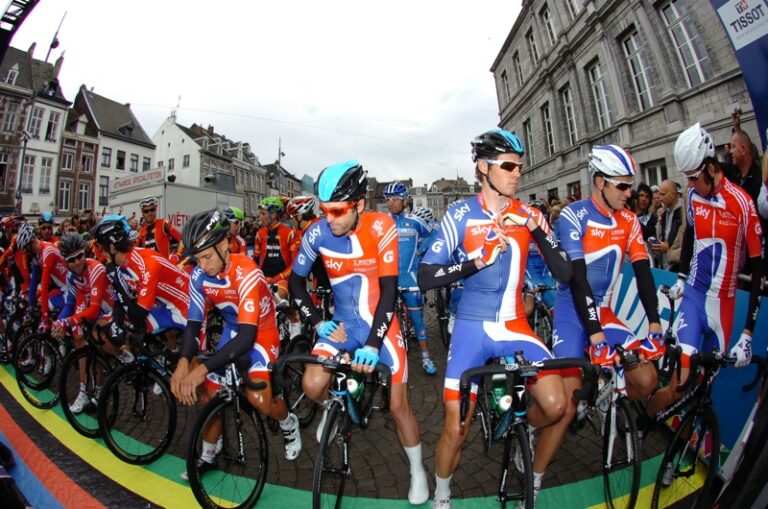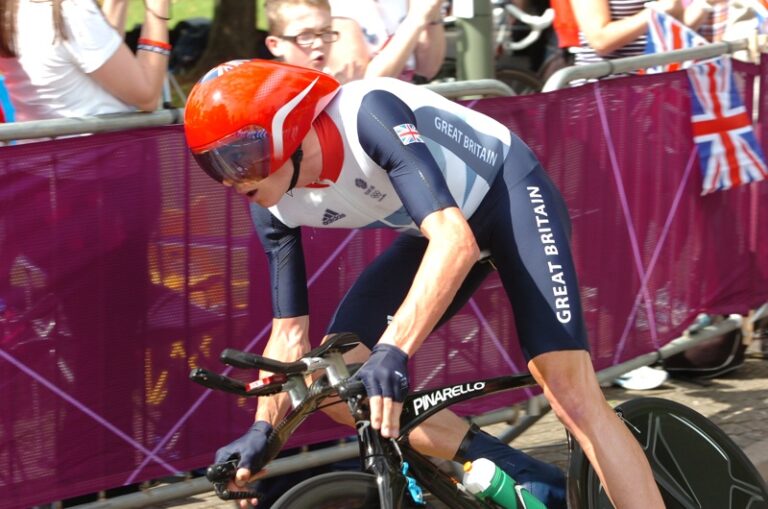Speculation surrounds the future of two young British sports stars, men known for speed and uncompromising pursuit of victory.
 Team Sky’s Mark Cavendish and McLaren-Mercedes Formula One driver, Lewis Hamilton, have dominated headlines in recent days with reports of their desire to leave their respective teams.
Team Sky’s Mark Cavendish and McLaren-Mercedes Formula One driver, Lewis Hamilton, have dominated headlines in recent days with reports of their desire to leave their respective teams.
Cavendish said publicly for the first time last Saturday (Sept 8) that he wanted to leave Team Sky. He stressed his desire for an amicable resolution, and indeed the smile on his face as he discussed what in other cases might be a difficult situation, said as much.
Hamilton’s reported dissatisfaction with McLaren goes back further, perhaps as far as last year’s Canadian Grand Prix and a rumoured meeting with Red Bull chief, Christian Horner. Most recently, he has been linked with Mercedes GP.
The sums of money involved, considerably larger for Hamilton, are impressive, but the refreshing point in both situations is the motivation of both sportsmen. Neither Cavendish or Hamilton has sought a move for financial reasons. Both seek greater success. Hamilton last won the world championship in 2008; Cavendish’s year-long tenure in the rainbow jersey looks almost certain to finish at the end of the month, given the nature of the parcours on which this year’s world road race championship will be contested.
Another positive is the professionalism with which both men have conducted themselves in their most recent sporting engagements. Two days ago, Hamilton won the Italian Grand Prix at Monza, and his fulsome praise of the team prompted fresh speculation that he will now stay with McLaren; few who witnessed Team Sky’s full-blooded assault on stages one and two of the Tour of Britain would question Cavendish’s commitment or that of his teammates.
Both have long associations with their current employers. When expressing his desire at the weekend that Team Sky would not enforce a release fee from his contract, Cavendish highlighted the fact he had known team principal, Dave Brailsford, since he was fourteen. Hamilton’s association with McLaren began a year earlier, as a 13-year-old.
The question for both men must be, which team could offer greater success than that provided by their current employers? Cavendish (and indeed teammate, Bradley Wiggins) believes the world road race champion must command the undivided support of his team to win future Tour de France green jerseys. Omega Pharma-QuickStep is the team most observers believe to be at the head of the queue for Cavendish’s signature, but, as this column has previously stated, is perhaps no better placed to concentrate solely on the Manxman’s fortunes. The Belgian team’s Belgian leader, Tom Boonen, in magnificent form and a strong candidate to succeed Cavendish as world champion, would surely remain their priority. Observers have focussed on a potential reunion with former directeur sportif, Brian Holm, but a transformation of Omega Pharma-QuickStep to HTC-Highroad seems unlikely. The former was a young team that quickly coalesced around Cavendish’s extraordinary talent; Omega Pharma-QuickStep has a host of established stars.
Would Mercedes GP offer Hamilton a greater chance than McLaren of claiming the second world title he craves? If past results are a guide, almost certainly no. With eight constructors and twelve drivers titles, compared to just two drivers titles, neither of which was attained since the marques’ return to the pinnacle of motor sport in 2010, McLaren has a comfortable historical advantage over its engine supplier, and while this is admittedly a consequence of having competed in more seasons, the trend continues (McLaren enjoys a 117 point advantage of Mercedes in the constructors championship).
Is the solution for both British sportsmen, proven winners, hungry for success, an asset to their respective sports, to stay where they are? In the view of this correspondent, yes. This analysis extends, hopefully, beyond blind patriotism. Watching Cavendish and Hamilton win with British teams has been a pleasure, but it’s hard to see which rival outfits could offer a greater chance of success than their current employers. And this must be the overriding consideration for both men.






